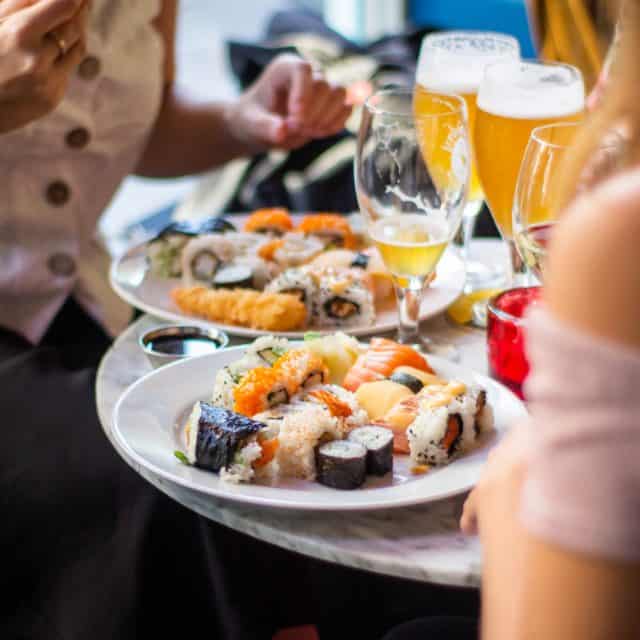
What is the secret of happiness to begin with? Happy people abound, they are all over on TV! But ask them and they will tell you that there is no secret to their happiness. These idols just know how to act happy when they have to. And since most everyone else is into idolatry, most everyone else wants to be just as happy, including you. Right?
Okay, so you would say that an act of happiness is nearly impossible if actors were not happy in general terms. Agreed. So, then, what is the secret about their secret of happiness?
Tolerate Adversity
I believe that it lies in the ability to tolerate adversity and the discomfort that comes with it. Sure, evolutionist writers would prefer to cast the case in terms of aversion to pain and the seeking of pleasure, and you probably heard about that discussion. But let’s be a bit more tangible, a bit more common.
It would not have helped Abraham Lincoln much to just have tried to avert all pain and seek nothing but pleasure. Oprah Winfrey would not have done any better by holding that attitude. Ditto the many other notables of the world.

So, then, where does happiness come from? Well, short of trying to avert pain and seeking pleasure, we know that that dichotomy is not one of demarcation between one and the other, but one of graduation because life is a rather fluid affair. To that point, people are willing to accept pain in the short term for the sake of pleasure in the long term. We are able to speculate about the future, and make calculations of which the outcomes motivate us in action today.
So, can I be comfortable with a bit of pain today, if it affords me pleasurable options in the future? Or is such discomfort too much to bear?
Now, don’t get me wrong, I am not much of a masochist. I am an epicurean and like my pleasures, and am glad that there is plenty for me. I would recommend that you do as I do in this regard, that is ‘find your thing’! A new job, a new home, a new or different something.
Necessary Discomforts
In spite of that, being alive just implies a lot of necessary discomforts. Yes, necessary — as in unavoidable. No choice about them, as in ‘I am thirsty’, and ‘I need to pee’. It is what it is. No human would dare to declare these discomforts as immoral.
We cannot be very happy living alone on an island. Tom Hanks tried it in the movie Castaway, and it did not work for him. We need shelter and food to stay alive and thus earn money to pay for it. Few win the lottery. Most of us eventually marry to share a bed and give up autonomy and liberty to make that loving relationship work. Needless to say, not all marriages work out.
Some people even feel trapped in life on earth. Especially the religious types believe that ‘all things’ will be better in the afterlife. Well, I understand that, but do not share that sentiment. Eternity is an awfully long time to avoid pain or boredom.
The English Monarchist Thomas Hobbes famously described life as “… nasty, brutish and short” in his book Leviathan, published in 1651. The Discovery Channel on TV shows that “eat or be eaten” is the rule in fishy oceans, and elsewhere. What are the odds of survival of the human race in evolutionary history? What are your and my odds of making it in this life? Yes, happiness should not be taken for granted, it is not a given — as in ‘gimme, gimme happiness‘.
Even the rich and wealthy are not necessarily happier. Just as anxiety-ridden and jealously protecting their privileges, they have a lot more means to ‘butter it over.’ And the people of the bottom-rung? They learn the hard way to make good with whatever they have. Occasionally, that makes for happiness since one can curb envy, and/or if one finds ways to ‘move up.’
Beating the Odds
But we do feel happy whenever we beat the odds, poor or rich. And laughter ensues. This is a remarkable insight. Truly, think about it. Kids do not really care about ‘making it for another day,’ they hang on to mom or dad and are content about their prospects, if not happy. But then comes adolescence, and life changes. Mom and dad fade into the background, hormones start kicking in, and peer pressure makes folks possibly do weird things. What are the odds of making it through another hour?

Remember when you felt happy? It probably was whenever you felt that you beat the odds. You made a new friend in high school and overcame some dreadful isolation. You were able to hit the brakes before slamming into the car ahead one night to stay unhurt. You welcomed a baby into the world — your child — and established your lineage. You were always happy as you were beating the odds.
And to beat the odds, I would say that you typically need all that you’ve got: your heart, intellect, and will. Luck alone is too ephemeral. People pray to seek favors from God — I am not sure that it works all the time because ‘God works in mysterious ways’ they say especially when bad things happen.
As you may know, psychologists point to self-control as the pivotal trait to have in order to ‘make it.’ So, is self-control the key to happiness, as many parents also would suggest? Yes and no. I would prefer to talk about the notion of tolerance, an attitude that surely leads to some happiness.
Happiness does not come so much from a great job, a wonderful mate, or any of the other many comforts (pleasures). Comforts do really make a big difference, but they do not necessarily dissolve the many nagging discomforts bothering us regardless. I believe that happiness comes from being able to tolerate the discomforts (pains), avoidable or not, that continue to challenge us every day on the many levels of being alive.
Begin to tolerate the discomforts of being human and you may surely beat the odds! You will be happy.
Believe me, being able to naturally tolerate pain is the secret of secrets. Today, when we say that someone has a ‘high tolerance for pain,’ we mean that he or she is able to endure pain. This ordinary way of thinking is useful for understanding the idea of toleration and the virtue of tolerance: it underscores the fact that toleration is directed by an agent toward something perceived as negative, a suffering.
Living for the Sake of Others

Now, some people may find that motto unpalatable. It seems to advise against the spirit of freedom and liberty, against the ‘I, Me and Myself’ attitude. And so it does. But the ‘I, Me and Myself’ attitude, while extremely popular, is a myth at best. You are being fooled by those who promote that attitude. It does not work to make you or anyone happy over a longer period. Being alive is a social thingy – for better or worse; to a few that is discomforting but to most others not. We desire others and even model ourselves after them. Others do sustain us, and we sustain them.
Why not live ‘for the sake of others’ as both a ?
Just don’t bet your life on it, there is no need for martyrdom in this. You’re supposed to live generously, and, when being with noble people, whatever you give will come back to you and, fruitfully, then some.
Look at it as an act, a superb act in a superb play that never ends. The play can easily outrank Shakespeare and his tragic love dramas. You want to mostly mix and mingle with others who live by the same script.
And you watch out for those smart, but self-obsessed types so as not to be taken advantage of. And other folks may even live for the sake of others so as to gain an upper hand over those who do live so naively. In any case, do not be afraid to abandon cheats, those that may — intentionally or not — treat you largely as a means to their ends.
A growing body of research shows that the deepest and most stable levels of happiness come from having meaning in our lives. Multidisciplinary research argues that the major religions might have been right all along with regard to one core message at least: that the meaning of life is to love one another. This love, in its essence, is defined as an expression of giving, generosity, and altruism as in contrast to the kind of private, interpersonal love that this site has adopted as its theme.
However, the romantic and consummate love which we are explaining on this site is just as instrumental to the quest for meaning and happiness as the agape-type of love advocated for by people of faith.
Plan, Strategize, Set Goals, and Move On

‘The show must go on,’ they say on Broadway. Stop whining and cryning, lamenting, provoking, and complaining. Start tolerating yourself for now and, by all means, then plan ahead. There is nothing wrong with trying to better one’s life. The phrase ‘God helps those who help themselves’ is a well-known motto that emphasizes the importance of self-initiative and agency (which is the capacity of an actor to act in a given environment). So, plan, strategize, set goals, chat up a storm and find assistance, and move on, etc. Do what seems right for you, but don’t act in a rash — ’cause if you are not happy, you cannot act happy!
Happiness will follow, emerge, arise, once you get a sweet handle on the discomforts of life to beat the odds.